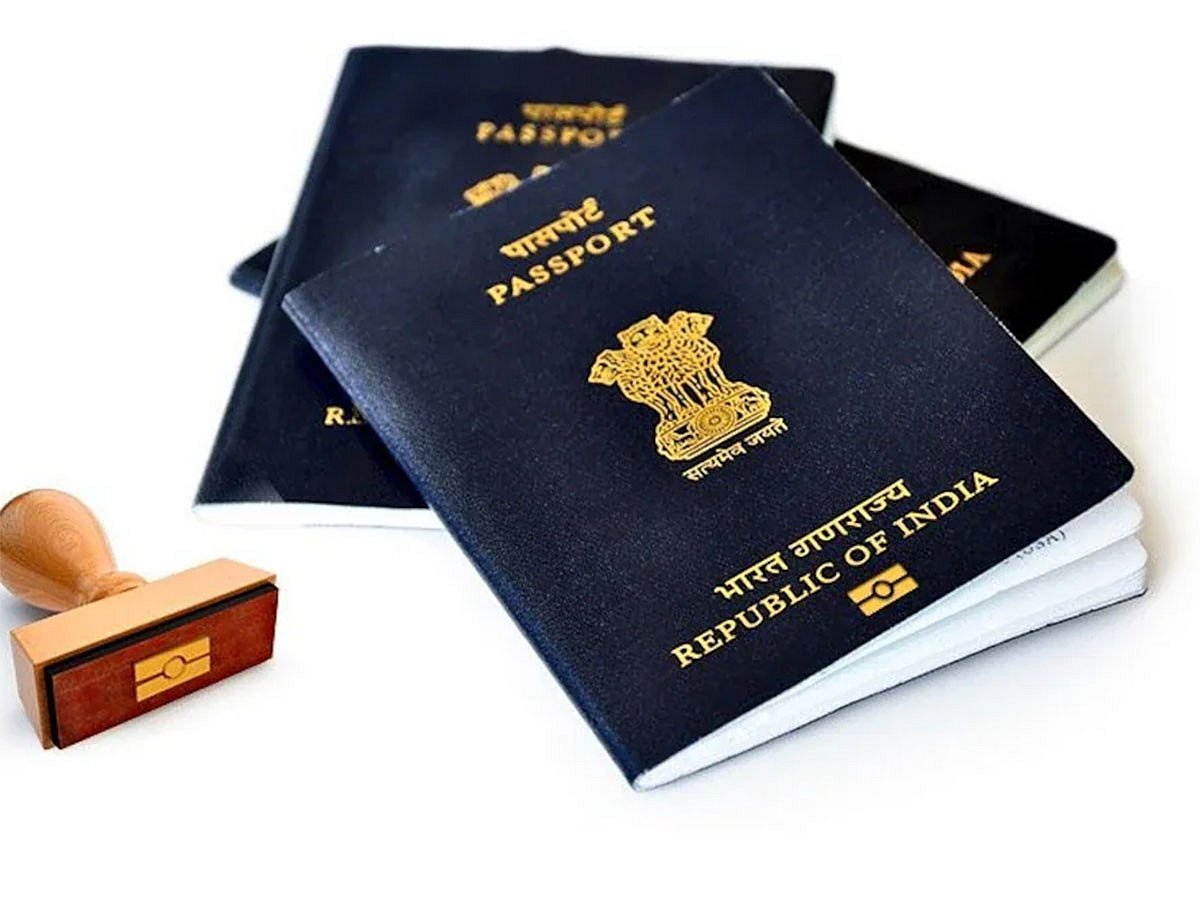India rolls out e-passports: Features, benefits, and how to apply – what travellers need to know
Travelling soon? Here’s how India’s new e-passport makes international travel easier

Dubai: India has officially launched its e-passport, a high-tech upgrade to the traditional passport, embedded with electronic features to boost security and streamline identity verification.
According to the Ministry of External Affairs (MEA), e-passports are currently available in select cities and will be extended to all Passport Seva Kendras across the country by the end of 2025.
What is an e-passport?
An e-passport combines the conventional passport booklet with an embedded Radio Frequency Identification (RFID) chip and antenna inside the back cover. This chip securely stores the holder’s personal and biometric information, including photos and fingerprints, allowing for faster, more reliable identity verification at immigration counters.
The initiative was launched under the Passport Seva Programme (PSP) Version 2.0, which began on April 1, 2024, as per the MEA.
How to identify an e-passport
You can identify an e-passport by spotting a small gold-coloured symbol on the front cover. This indicates the presence of an RFID chip inside.
Key benefits of e-passports
Enhanced security: The chip uses Public Key Infrastructure (PKI) technology to protect data from tampering, forgery, and identity theft.
Faster immigration: E-passports allow access to automated e-gates, speeding up clearance and reducing manual checks.
Global compliance: The embedded chip follows international protocols, making it easier for global authorities to verify the passport’s authenticity and reducing chances of duplication.
Why is it useful for travellers?
E-passports offer both printed and digitally signed data, making it more secure and harder to forge. This digital enhancement also enables quicker immigration processing. Travellers with e-passports can now use automated lanes in airports where biometric passport verification is supported.
How to apply for an e-passport
The application process remains the same as that for a regular passport. Citizens can apply via the Passport Seva Portal, schedule an appointment at the nearest Passport Seva Kendra (PSK) or Post Office Passport Seva Kendra (POPSK), and submit their biometric information.
What happens to traditional passports?
The MEA has clarified that there is no mandatory requirement to switch to an e-passport. All existing passports will remain valid until their expiry date, and the transition to e-passports will be gradual and voluntary.
Where are e-passports being issued?
Currently, e-passports are issued at regional Passport Offices in cities including Jammu, Goa, Nagpur, Shimla, Bhubaneswar, Delhi, Ranchi, Surat, Hyderabad, Chennai, Jaipur, Amritsar, and Raipur. The MEA has announced plans to extend e-passport availability nationwide in the coming months.
What’s next for the e-passport rollout?
The launch of e-passports signals the start of a phased transition to a more secure and efficient passport system. As the initiative expands nationwide, it is expected to simplify international travel for Indian citizens and reinforce the country’s push toward adopting advanced, technology-driven public services.
Global adoption of e-passports
India joins a growing list of countries that have adopted e-passports, including the US, Canada, UK, Germany, France, Brazil, and Australia, reflecting a global shift toward secure, efficient, and technology-driven travel documentation.
How to apply for e-Passport online: Step-by-Step guide
Register on the Passport Seva Portal
Visit the Passport Seva Online Portal and create an account.Login to your account
Use your registered ID and password to log in.Choose the application type
Click on “Apply for Fresh Passport/Re-issue of Passport.”Select “Fresh” if you’ve never held that type of passport.
Select “Reissue” if you’re renewing an existing one.
Pay the application fee
Complete the payment online and schedule an appointment at your preferred Passport Seva Kendra (PSK) or Regional Passport Office (RPO).Save your appointment confirmation
Print the Application Receipt or keep the SMS confirmation handy for your appointment.Visit the PSK or RPO
Arrive at the selected center on your appointment date with all original documents.Receive your e-passport
Once verified and processed, your e-passport will be delivered to your registered address.
Indian expats in UAE begin receiving new e-passports
New e-Passport rollout: Indian expats in the UAE now receive third-generation e-Passports with embedded RFID chips for enhanced security and smoother immigration.
Mandatory for new applications: All passport applications submitted from October 28 onwards are processed as e-Passports via Global Passport Seva Portal 2.0 (GPSP 2.0).
Existing passports remain valid: No replacement needed until expiry; fees remain unchanged.
Simplified application process: Renewals require old passport number and email verification; new applications require ICAO-compliant photos and printed submission at BLS centres.
Three passport designs in circulation: Pre-2021, 2021, and new ePassport distinguished by a gold chip symbol and updated numbering system.
Enhanced security: ePassport stores personal and biometric data using PKI encryption, preventing forgery and fraud.
Faster immigration: Electronic chip enables quicker processing at ePassport-enabled borders worldwide.
No new biometric collection in UAE: Current photos are sufficient for initial rollout; no extra fees or appointments needed.
High-volume processing: UAE missions can handle ~1,600 passports daily, supporting efficient renewals and new issues.
Official channels only: Applicants advised to rely on Embassy/Consulate updates to avoid misinformation.
Global alignment: Part of India’s efforts to modernise passports, strengthen security, and comply with international digital standards.
Network Links
GN StoreDownload our app
© Al Nisr Publishing LLC 2026. All rights reserved.